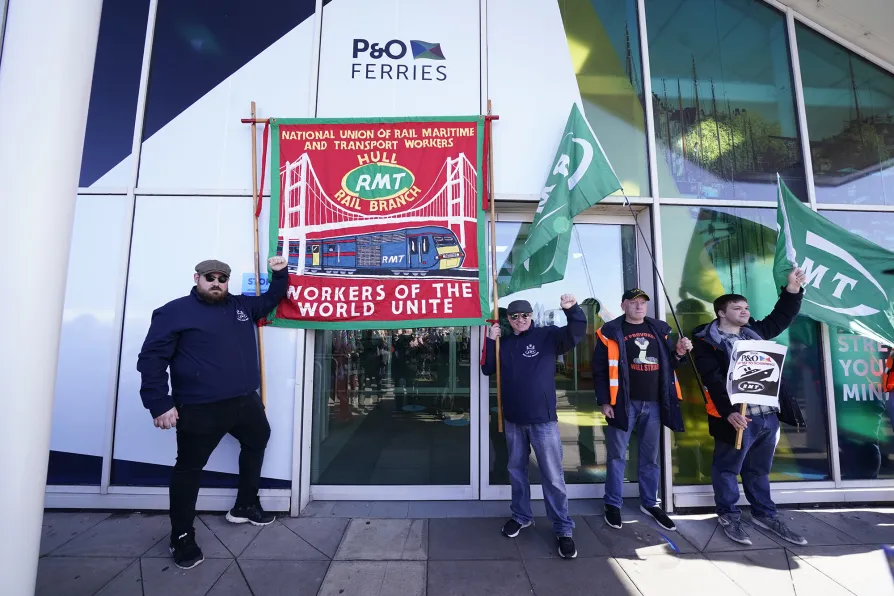The real question for Your Party, as it holds its CEC elections, will be whether shaped from above or built from below by empowered branches and a bold, uncompromising socialist programme. Mel Mullings, Riccardo la Torre and Chloe Braddock of the Grassroots Left slate set out their case
We won’t be letting P&O off the hook
RMT general secretary MICK LYNCH explains why the union are calling on the travelling public to ‘Boycott P&O’ and to support its protests at ports across the country

 Protesters stand outside the P&O building at the Port of Hull, East Yorkshire, after P&O Ferries suspended sailings and handed 800 seafarers immediate severance notices
Protesters stand outside the P&O building at the Port of Hull, East Yorkshire, after P&O Ferries suspended sailings and handed 800 seafarers immediate severance notices
THE sacking of 800 P&O workers in March shocked and appalled the entire trade union movement.
The callousness of the decision with no thought towards the livelihoods it would destroy or the inevitable damage it would wreak on a struggling industry was not something we’d seen in Britain for many years.
CEO Peter Hebblethwaite admitted under a grilling examination by exasperated MPs that he knew that the company was violating the law. He went on to justify this flagrant breach of employment law by saying no union would have accepted the company’s terms.
Similar stories

MARTYN GRAY asks TUC congress to endorse measures that would help stop the present exploitation of seafarers












